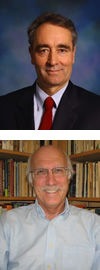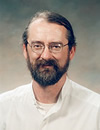|
FORUM CATEGORIES
Commentaries on IP issues by
experts from business, academia,
science ...
The IP Climate is Changing - What You Should Know
Facing off with a university in court is something no inventor wants to ...
Ethics and technology transfer do not always go hand-in-hand. Share your...
Intellectual property polices may differ from actual practices at your u...
|
|
Personal commentaries
on intellectual property
issues by experts from
business, academia,
science and government.
|
|
 |
 |
|
|
Meet the Experts
IP Advocate has asked thought leaders from business, academia, science and government to share their opinions in this special section of the IPAO forum. Participating experts will address current intellectual property concerns related to topics such as technology transfer, commercialization, patent "reform", IP legislation, university litigation and other related subjects.
|
|
 |
 |
Myriad Ruling Is No Joke
By Marcel Mongeon
Intellectual Property Coach, Founder of Mongeon Consulting
Mongeon shares his opinion on the recent Myriad ruling that invalidated several of the pharmaceutical and genetics giant's patents. While Myriad argued that the BRCA1 and BRCA2 genes linked to cancer were indeed patentable, the court found them non-patentable because they were merely a product of nature.
Mr. Mongeon is an Intellectual Property Coach who assists institutions and companies in creating strategies to profit from their intangible assets, including patents. Mongeon is an attorney practicing in both the U.S. and Canada, is a Canadian registered patent and trademark agent. He holds degrees in business, science and law.
Click to read Myriad Ruling Is No Joke
|
 |
 |
Who Determines the Destiny of University Innovation?
An AUTM debate over the role of the inventor in licensing
By Renee Kaswan, DVM, MS
Founder, IP Advocate, Inventor of Restasis®
IPAO Founder Dr. Renee Kaswan shares her commentary on the first AUTM debate over the "Role of Inventors in Negotiating License Transactions". Kaswan accepted AUTM's invitation to participate in this landmark debate at their Annual Conference, held this year in New Orleans. Kaswan addressed the audience of tech transfer professionals based on her experience as a faculty researcher and inventor frustrated with the process of technology transfer and the all too limited role inventors are allowed to play in the commercialization process.
Dr. Renee Kaswan is a political activist and philanthropist who travels the U.S. to influence the debate over patent reform and intellectual property rights from the faculty inventor perspective. As the inventor behind the blockbuster drug Restasis, Kaswan has spent time in the classroom, research lab and courtroom, and is a sought after speaker and thought leader that brings a distinctive viewpoint and voice to the issues of patent and IP ownership.
Click to read Dr. Kaswan's commentary on the debate over Who Determines the Destiny of University Innovation? The Role of the Inventor in Licensing >>
|
 |
 |
Reconsidering the Bayh-Dole Act
By Martin Kenney, PhD and Donald Patton, PhD
Dr. Kenney and Dr. Patton recently completed a whitepaper Reconsidering the Bayh-Dole Act and the Current University Ownership Model. This paper examines the effects of the landmark legislation and the issues currently plaguing university technology transfer and suggests two alternative invention commercialization models. IPAO has selected excerpts from this paper that provide insight into the motivations and assumptions that led to the passage of Bayh-Dole.
Dr. Martin Kenney is a professor at the University of California, Davis, and a senior project director at the Berkeley Roundtable on the International Economy (BRIE). He is a fellow at the Center for Entrepreneurship at UC Davis. He has written/edited five books, over 120 scholarly articles and edits a book series for Stanford University Press on innovation and globalization. His current research is supported by the NSF, the Sloan Foundation and the Ewing Marion Kauffman Foundation.
Dr. Patton received his doctorate in economics at the University of California. Dr. Patton and Kenney have been researching high technology clusters in the United States. In addition, with funding from the NSF, Patton is involved in constructing a database of IPOs in the U.S.
Click to read Reconsidering the Bayh Dole Act
|
 |
 |
Lost in Translation - Unintended Consequences of the Bayh-Dole Act
By Elizabeth Popp Berman, PhD
Assistant Professor, Dept. of Sociology, State University of New York
Exclusively written for IPAO, Dr. Berman dissects the intentions and unintended consequences of the Bayh-Dole Act that have altered university research. In addition, she presents two ideas for addressing some of the dysfunctions in university technology transfer.
Dr. Elizabeth Popp Berman is currently a professor at the University of Albany. Her research examines how academic science came to play an important role in our economy. Dr. Berman received her PhD in Sociology from the University of California, Berkeley. Her book, Creating the Market University: How Academic Science Became an Economic Engine, will be published next year by Princeton University Press.
Click to read Lost in Translation - Unintended Consequences of the Bayh-Dole Act
|
 |
 |
Q&A with Tech Transfer Veteran on Giving
Inventors More Choice to Nurture Innovation
IPAO Interviews Gerald Barnett, PhD
Director, Research Technology Enterprise Initiative (RTEI)
University of Washington
If you make a discovery through federally funded research, what happens to your creation? Universities usually require you to use their Technology Transfer Office to commercialize your invention. In this interview, tech transfer veteran Gerald Barnett explains why universities should replace that policy with one that gives faculty more choice in how their inventions are managed.
Gerald Barnett has more than two decades of experience in technology transfer and now serves as Director of University of Washington's RTEI. Prior to RTEI, Barnett was Director of the Office for Management of Intellectual Property at the University of California, Santa Cruz. He designed one of the first certificate courses in IP Management. Dr. Barnett's current work to create new ways of transforming university innovation practices is sponsored by the Ewing Marion Kauffman Foundation.
Click to read Want to Nurture Innovation? Give University Inventors More Choice
|
 |
 |
Is the New University Mantra "Publish, Patent or Perish"?
Elliott Kulakowski, PhD
President, Research Administration and Management Strategy Group (RAM)
Dr. Kulakowski has over 25 years experience in technology and research management experience. His company, RAM, provides business management consulting services to technology based start-up companies and technology and research management services to universities and research institutes. He has worked for NIH research-intensive universities, and academic medical centers and co-authored Research Administration and Management with Lynne Chronister. Dr. Kulakowski is a past president of the Society of Research Administrators International (SRA), is a member of the National Council of University Research Administration and received both the SRA Excellence Award and Distinguished Faculty Award. He publishes and lectures internationally on issues of technology development and research management.
Click to read Is the New University Mantra "Publish, Patent or Perish"?
|
 |
 |
Q&A with Expatriate Scientist Leaving U.S.
Frustrated with Barriers to Research
IPAO Interviews David Townsend, PhD
Head of SPECT and PET Development, Singapore Bioimaging Consortium
Professor, National University of Singapore
Dr. David Townsend is beginning a new position as a professor and researcher at the National University of Singapore and the Head of SPECT and PET Development at the Singapore Bioimaging Consortium. Dr. Townsend is best known for his co-invention
of the combined PET/CT scanner which was named TIME Magazine's Medical Invention
of the Year in 2000. His research in imaging has been funded by the National Institutes
of Health and the National Cancer Institute. Dr. Townsend was honored in 2004 as the Distinguished Clinical Scientist by The Academy of Molecular Imaging for his contributions to the development and enhancement of PET molecular imaging. Most recently, for his contributions to Positron Emission Tomography (PET), Dr. Townsend was elected a Fellow of the IEEE, one of the Institute's most prestigious honors. Dr. Townsend earned a Ph.D. in Particle Physics from the University of London.
Click to read Expatriate Scientist Leaving U.S. Frustrated with Barriers to Research
|
 |
 |
Solutions for Crisis in Healthcare
by Fred Mermelstein, PhD
Executive Director and Founder, Javelin Pharmaceuticals, Inc.
Dr. Fred H. Mermelstein founded and is the Executive Director and a former CEO of Javelin Pharmaceuticals and serves as Chairman of the Board for PearTree Pharmaceuticals, another firm he founded. In the past, he founded and served as a Director and Chief Science Officer of PolaRx BioPharmaceuticals, an oncology focused biopharmaceutical firm which developed Trisenox™. Dr. Mermelstein holds a dual PhD in Pharmacology and Toxicology from Rutgers University and University of Medicine and Dentistry of New Jersey (UMDNJ) Robert Wood Johnson Medical School. He completed his post-doctoral training supported by two grant awards, a National Institutes of Health fellowship and a Howard Hughes Medical Institute fellowship in the Department of Biochemistry at UMDNJ Robert Wood Johnson Medical School.
Click to read How Can our U.S. Tax Dollars Better Translate Into Medical Benefit
|
 |
 |
Q&A with a Faculty Inventor
IPAO Interviews Galen J. Suppes, PhD
Professor of Chemical Engineering, University of Missouri-Columbia
Dr. Galen J. Suppes is currently a professor and researcher at the University of Missouri, holds the J.C. Dowell Professorship and has a joint appointment in the Department of Mechanical and Aerospace Engineering. He specializes in research on biomaterials and bioprocessing, particularly "green" processes such as the use of carbon materials in batteries and capacitors and nanocarbons for natural gas and hydrogen storage. Dr. Suppes holds several patents related to his green technologies, is a frequently cited author and has received several prestigious awards including the EPA's Presidential Green Challenge Award, the Glycerine Innovation Research Award and an Excellence in Teaching Award. Dr. Suppes received his BS in Chemical Engineering from Kansas State University and his PhDfrom Johns Hopkins University.
Click to read Critical Issues in University Intellectual Property
|
 |
|
All Posts on the Discussion Board |
|
|
|
|
| POSTS |
AUTHOR |
VIEWS |
REPLIES |
LAST POST |
| Myriad Ruling Is No Joke |
IP Advocate |
78195 |
0 |
Jun 1, 2010 12:53 PM
by: IP Advocate |
| Who Determines the Destiny of University Innovation?An AUTM debate over the role of the inventor in licensing |
IP Advocate |
13873 |
0 |
Mar 31, 2010 12:45 PM
by: IP Advocate |
| Reconsidering the Bayh-Dole Act |
Dr. Martin Kenney and Dr. Donald Patton |
49896 |
0 |
Sep 24, 2009 11:18 AM
by: Dr. Martin Kenney and Dr. Donald Patton |
| Is the New University Mantra “Publish, Patent or Perish�? |
Dr. Elliott C. Kulakowski |
67226 |
1 |
Oct 1, 2009 9:07 AM
by: Chris Noble |
| Lost In Translation Unintended Consequences of the Bayh-Dole Act |
Dr. Elizabeth Popp Berman |
9424 |
0 |
Sep 18, 2009 3:09 PM
by: Dr. Elizabeth Popp Berman |
| Want to Nurture Innovation?Give University Inventors More Choices |
Dr. Gerald Barnett |
14636 |
1 |
Jan 6, 2010 4:22 PM
by: rowan32 |
| Solutions For Crisis in Healthcare: How Can Our US Tax Dollars Better Translate Into Medical Benefit? |
Dr. Fred Mermelstein |
3388 |
0 |
Jul 30, 2009 10:51 AM
by: Dr. Fred Mermelstein |
| Q&A with Expatriate Scientist Leaving U.S. Frustrated with Barriers to Research |
Dr. David Townsend |
8361 |
2 |
Mar 16, 2011 12:00 PM
by: mdphd |
| Q&A on Critical Issues in University Intellectual Property |
Dr. Galen Suppes |
9421 |
0 |
Jun 29, 2009 10:53 AM
by: Dr. Galen Suppes |
|
|
|
|
| |
|




